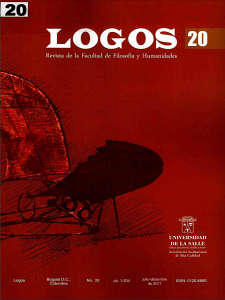Abstract
This article deals with Montessori’s scientific pedagogy and how his researches and the creation of houses for children become official, as well as how discourses and medical, biological, anthropological and psychological practices are installed in the pedagogy field in modern schools. Influenced by the theories of Lombroso and Darwin, he considered that human beings were no more than a cell composed by a protoplasm and nucleus the size of a tenth of a millimeter, from where individuals who are very different from each other come from. This is why, in order to understand and carry out the practical researches of anthropology with pedagogical purposes, enough notions of biology are required, as well as the collaboration of other disciplines that work side by side with pedagogy. Thus the importance to show and question the effects of these discourses and practices regarding the conception of an active pedagogy, far from the concern for the child’s education in terms of his relationship with himself, knowledge and the world, pedagogical statements that lose validity in the operation of the school proposed by Montessori. For such purpose, some concepts from Foucault are taken as reference (population, policies, normalization, knowledge practices) in the perspective of the notion of bio-politics.Downloads
Download data is not yet available.



